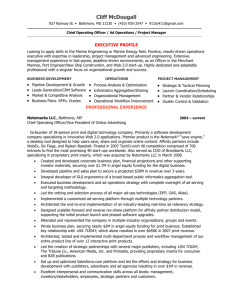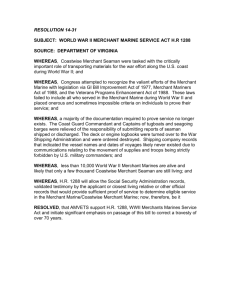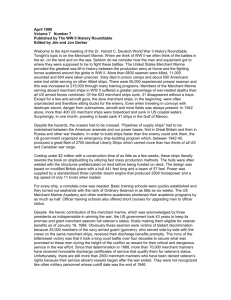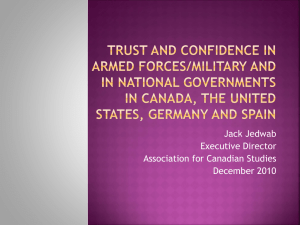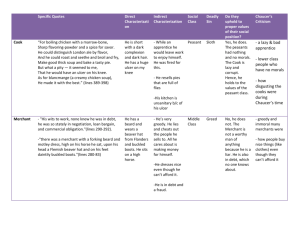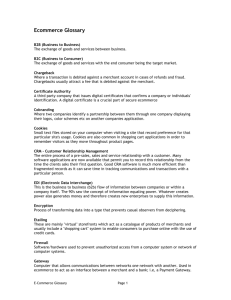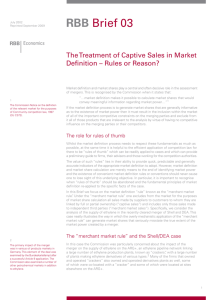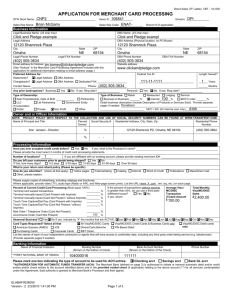The Armed Guard and the Merchant Marine
advertisement
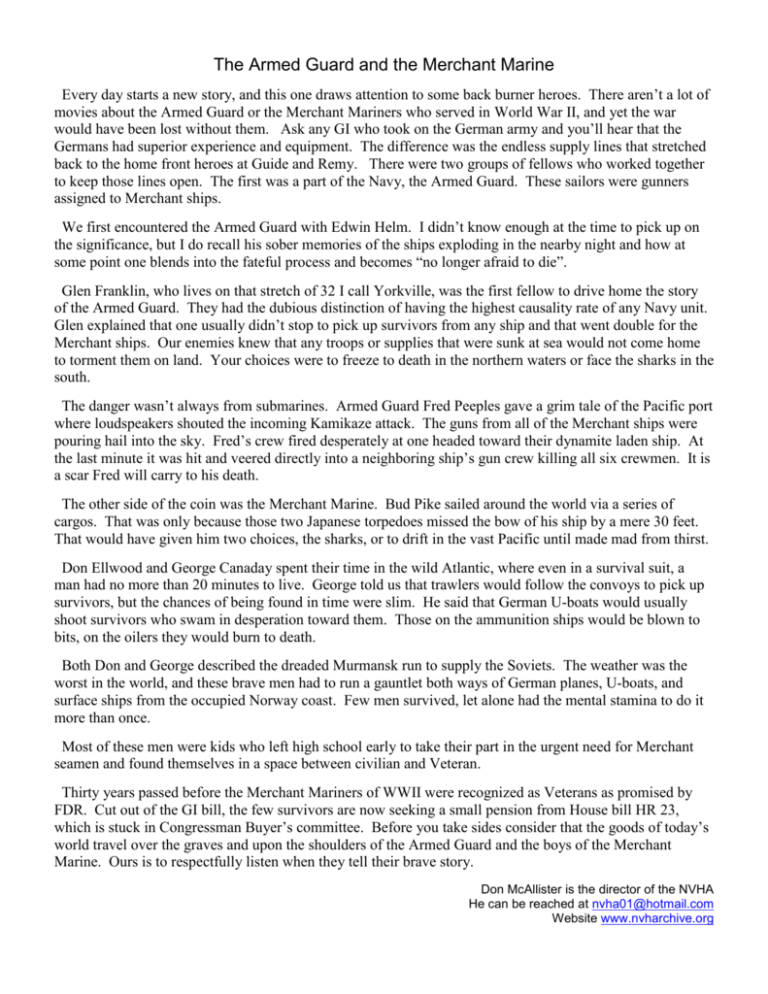
The Armed Guard and the Merchant Marine Every day starts a new story, and this one draws attention to some back burner heroes. There aren’t a lot of movies about the Armed Guard or the Merchant Mariners who served in World War II, and yet the war would have been lost without them. Ask any GI who took on the German army and you’ll hear that the Germans had superior experience and equipment. The difference was the endless supply lines that stretched back to the home front heroes at Guide and Remy. There were two groups of fellows who worked together to keep those lines open. The first was a part of the Navy, the Armed Guard. These sailors were gunners assigned to Merchant ships. We first encountered the Armed Guard with Edwin Helm. I didn’t know enough at the time to pick up on the significance, but I do recall his sober memories of the ships exploding in the nearby night and how at some point one blends into the fateful process and becomes “no longer afraid to die”. Glen Franklin, who lives on that stretch of 32 I call Yorkville, was the first fellow to drive home the story of the Armed Guard. They had the dubious distinction of having the highest causality rate of any Navy unit. Glen explained that one usually didn’t stop to pick up survivors from any ship and that went double for the Merchant ships. Our enemies knew that any troops or supplies that were sunk at sea would not come home to torment them on land. Your choices were to freeze to death in the northern waters or face the sharks in the south. The danger wasn’t always from submarines. Armed Guard Fred Peeples gave a grim tale of the Pacific port where loudspeakers shouted the incoming Kamikaze attack. The guns from all of the Merchant ships were pouring hail into the sky. Fred’s crew fired desperately at one headed toward their dynamite laden ship. At the last minute it was hit and veered directly into a neighboring ship’s gun crew killing all six crewmen. It is a scar Fred will carry to his death. The other side of the coin was the Merchant Marine. Bud Pike sailed around the world via a series of cargos. That was only because those two Japanese torpedoes missed the bow of his ship by a mere 30 feet. That would have given him two choices, the sharks, or to drift in the vast Pacific until made mad from thirst. Don Ellwood and George Canaday spent their time in the wild Atlantic, where even in a survival suit, a man had no more than 20 minutes to live. George told us that trawlers would follow the convoys to pick up survivors, but the chances of being found in time were slim. He said that German U-boats would usually shoot survivors who swam in desperation toward them. Those on the ammunition ships would be blown to bits, on the oilers they would burn to death. Both Don and George described the dreaded Murmansk run to supply the Soviets. The weather was the worst in the world, and these brave men had to run a gauntlet both ways of German planes, U-boats, and surface ships from the occupied Norway coast. Few men survived, let alone had the mental stamina to do it more than once. Most of these men were kids who left high school early to take their part in the urgent need for Merchant seamen and found themselves in a space between civilian and Veteran. Thirty years passed before the Merchant Mariners of WWII were recognized as Veterans as promised by FDR. Cut out of the GI bill, the few survivors are now seeking a small pension from House bill HR 23, which is stuck in Congressman Buyer’s committee. Before you take sides consider that the goods of today’s world travel over the graves and upon the shoulders of the Armed Guard and the boys of the Merchant Marine. Ours is to respectfully listen when they tell their brave story. Don McAllister is the director of the NVHA He can be reached at nvha01@hotmail.com Website www.nvharchive.org


